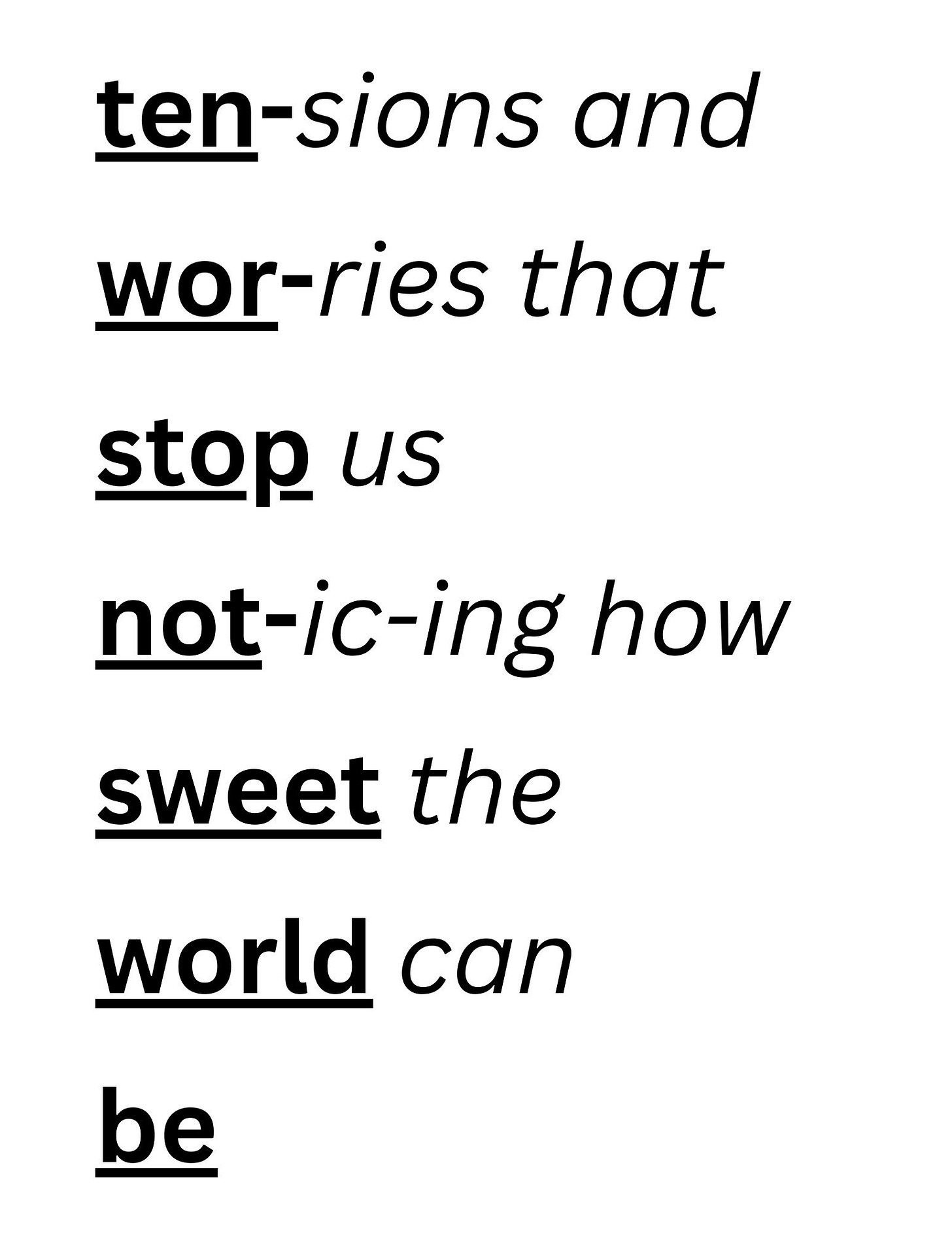The Secret to Happiness, According to Screenwriter Richard Curtis
What Makes Great Writing #026 - Featuring the Smash Romantic Comedy About Time
Many of you know I had a hard January.
The month zipped by in a haze of hospital rooms, masked-up nurses peeking in to stop the monitor beeping, fix an artery line, or perform another test. It wouldn’t have been dry January, even if we had stopped drinking, because of all the tears
(Did you enjoy that joke to break the tension? It helps if you imagine a rimshot. Anyway…)
11 days ago, a pinprick of hope punctured the fog of bad news. Once Kate relayed the message to me, I hung up the phone and thought:
“Every day after this is bonus time.”
I thought this as if it were a new development. As if the clock has just started running. As if we aren't all dying a little bit each minute.
Being alive is, in no uncertain terms, a miracle. The far more common condition is that you are dust. Either a memory or a concept. And the odds of your being alive AT THE SAME TIME as another person whose company you enjoy… well that’s just impossible.
(Or maybe inevitable. I haven’t decided yet.)
The point is this: your whole life is bonus time.
It’s extra.
A gift.
Probably many pieces of art convey this message. One immediately comes to mind is Richard Curtis's About Time.
Curtis created unbearably optimistic movies like Notting Hill and Love Actually. This optimism isn't put on for Hollywood’s sake. If anything, Curtis's movies are LESS optimistic than he is.
About Time is a quirky rom-com, led by Bill Weasley from Harry Potter (known to his mother as Domhnall Gleeson). Weasley/Gleeson plays a boy who learns he can time travel. He decides to use this power to find love. Chaos ensues.
After a romp featuring awkward kisses, misplayed romantic advances, distraught sisters, smashed cars, pitch-black restaurants, and Uncle Vernon from Harry Potter, our hero succeeds. True love - in the form of Rachel McAdams (who is not in Harry Potter because she is too American).
Toward the end of the film, Gleeson’s character discovers a catastrophic problem. One even time travel cannot solve.
At this point, the young man’s father (Rufus Scrimgeour from Harry Potter, otherwise known as Bill Nighy) tells him a second secret. A secret that, apparently, is even greater than time travel.
This is the climax of the film. If you haven’t seen it, you will have no context. And, generally speaking, the whole point of art is to deliver a message in a new context.
But.
This short little speech is good enough to admire on its own.
Let’s get to it.
Father: "I have something very important to tell you. Or, let me check, do you want to know the big secret or would you rather find it out for yourself like I did?"
Son: "Oh Christ. There's another secret?"
Father: "Less traumatic. Much more important. The real mothership."
Son: "......Oh, go on. Tell me. Let's save some time."
Orchestras repeat melodies so we remember a musical. Screenwriters repeat words or phrases. Repetition is key when you can’t look at the words.
Just like in an earlier scene from the movie, the father is casually throwing around the phrase “big secret.” "Mothership" is also a reference to that previous conversation, even though this time, it happens to be seated at the end of a rule of three sequence (three sentences, similar length).
We can’t help but think:
“The REAL mothership? More real and more mothership-y than time travel???"
For good measure, we have a clever line about "saving time." It’s a play on words that is closest to a syllepsis (using a word in multiple contexts - the characters can LITERALLY save time, but now they are figuratively doing so).
"And so he told me his secret formula for happiness."
"Part 1 of the 2-part plan was that I should just get on with ordinary life, living it day by day like anyone else.”
Oh good! A chance to dismantle bad, but common, writing and speaking advice. Specifically, this one:
“Tell ‘em what you’re going to tell ‘em. Then tell ‘em. Then tell him what you told ‘em.”
This is early-1900s advice for giving sermons. Seems unlikely that it kept an audience's attention even in a world where nobody could drive, look at their phone, or dream about their fantasy football points. It certainly doesn't now.
More to the point, screenwriter Richard Curtis isn't trying to get us to REMEMBER both parts. He wants to set up an internal cliffhanger. He wants to build tension before revealing "the real mothership."
He wants us desperate for part two.
Which reminds me: calling this a "2-part plan" instead of a "plan " is perfect execution of The 14th Rule (using a number to make a line more concrete).
We see a montage. Weasley/Gleeson lives an ordinary day, frustrated with work, hurried at lunch, annoyed on the tube.
He ends the montage by telling his wife: "Tough day."
Then he sneaks out of bed and starts time traveling...
"But then came part two of dad's plan. He told me to live every day again, almost exactly the same.
The first time with all the tensions and worries that stop us noticing how sweet the world can be. But the second time, noticing."
Mmm.
Where to start?
Let's first begin with that phrase about "tensions and worries."
In an earlier draft of the script, the nouns in this line were "strains and tension." Either Richard or his editor Emma Freud adjusted it, most likely to give the line a more poetic bounce. I think this is also why the word “from” is omitted.
Now, the meter of "tensions and worries" matches, and there's an ending alliteration (repetition of consonant sounds).
Yes, there's parallelism to start these final two lines (similar or identical structure in the first three words). And also a great balance of hypotaxis and parataxis (a long sentence followed by a short one).
But the repetition of “noticing” stands out. It's an odd word to use here.
Noticing.
Not forcing. Not creating. Not manifesting.
Not adjusting, tweaking, changing, or any of the other verbs a time-traveling redhead might be tempted to employ.
Simply: Noticing the sweetness. This is what's required for happiness.
Because life is inherently sweet, in all its triumphs and tragedies, in congress or a cafeteria, in a river or a riot. The sweetness of life is not a result of man’s effort or struggle. It just is sweet.
Well. It is if you notice.
Much love as always,
-Todd B from Tennessee
For more on using poetic lines in non-poetry, read this.
For more on the rule of three, read this.




Gosh, three years back, this structure and strategy of organization, transition and emphasis is still touted in academia. The "start out with what you say, say it, then tell them what you said" was something we had to do with our presentations and writing.
Our slides each had to be pointed and focused on the message being delivered. In hindsight, most of my presentations ended up just that and not using the bad advice.
If it was that structure I would think it was more for trying to fill in the time or in the end if no one was paying attention, then you could just wait until the end for the summary slide or something.
Anyways, thanks for the insight and pointing out the rhetorical devices.
I've got to watch this movie at some point.